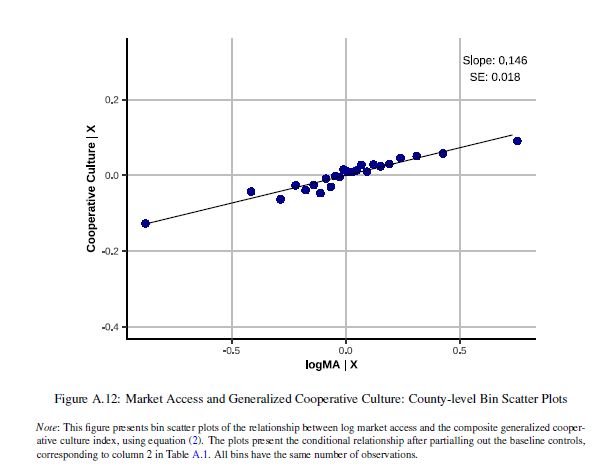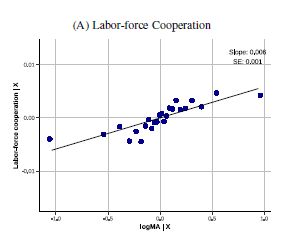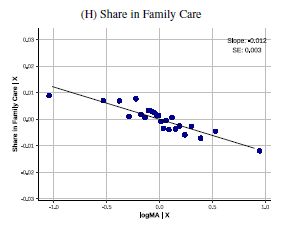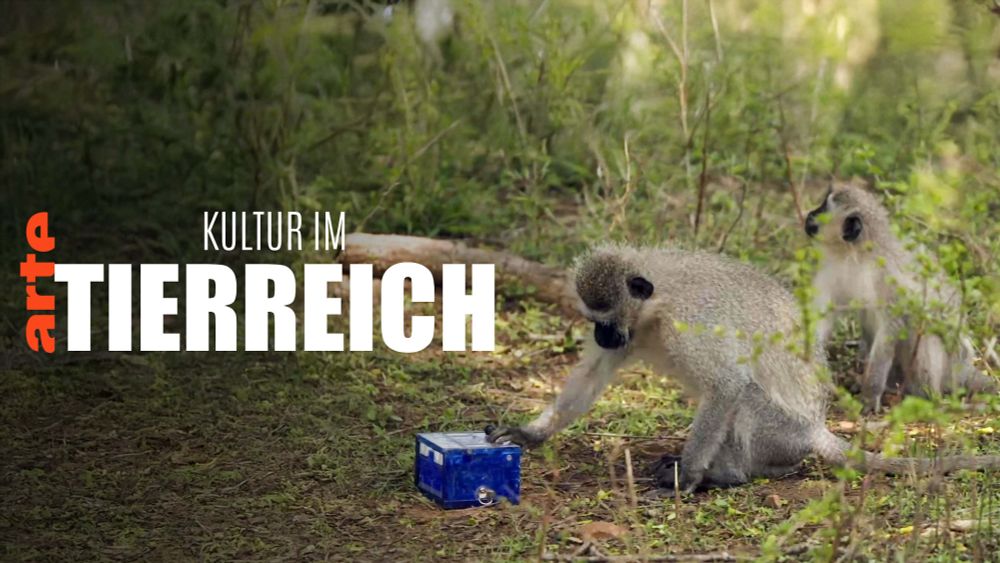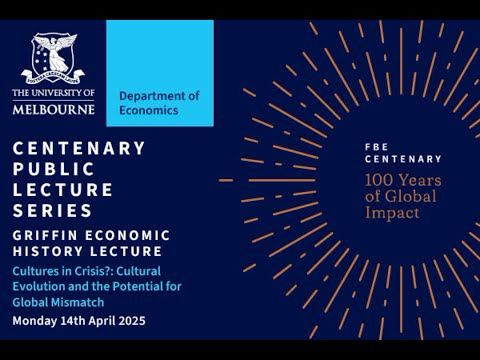Fully agree that race might be a big factor. We've done a robustness check in which we drop all counties in the South and get very similar estimates.
01.02.2026 16:38 — 👍 0 🔁 0 💬 0 📌 0

📢 Call for papers 📢
Join us for the Bristol Applied Economics Meeting (BÆM) on the Economics of Migration, May 6-7!
Invited talks by Ran Abramitzky, Joan Monras, and Caroline Theoharides.
Submit your paper by Jan 31. Some travel funding is available. baem.info/CfP_MIG_26.pdf
18.12.2025 12:58 — 👍 7 🔁 5 💬 1 📌 1
Interesting
12.12.2025 16:06 — 👍 1 🔁 0 💬 0 📌 0
Thanks for the invite and the great discussions. I had a lot of fun !
06.10.2025 19:27 — 👍 4 🔁 0 💬 0 📌 0
📢 Conference announcement!
Paolo Surico and I are excited to be organizing this @cepr.org conference on Public Policies for Innovation.
If you work in the #Economics of #Innovation and #InnovationPolicy, please submit + spread the word. Non-presenting attendees also invited.
24.09.2025 13:48 — 👍 7 🔁 9 💬 2 📌 0

Happy to share that the new Econ Seminar Series in Lugano is ready to begin! Find hereby our speakers for the #Autumn25 Series!
📆Check out the full schedule below!
idep.usi.ch/storage/app/...
If interested, please contact us here or via our email: idep@usi.ch
19.09.2025 08:53 — 👍 9 🔁 2 💬 1 📌 0
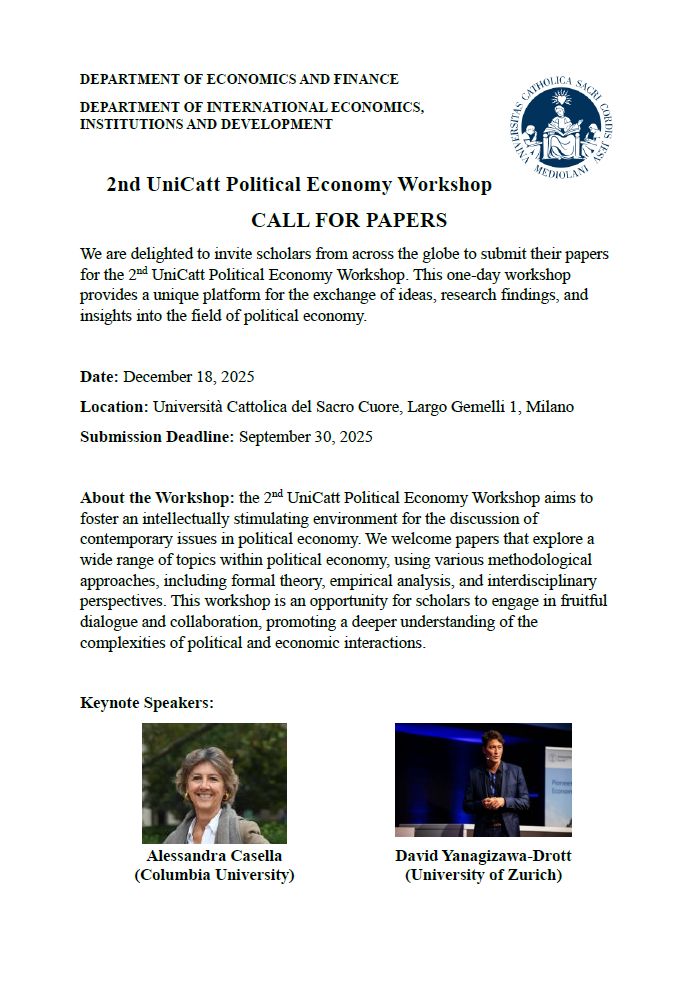
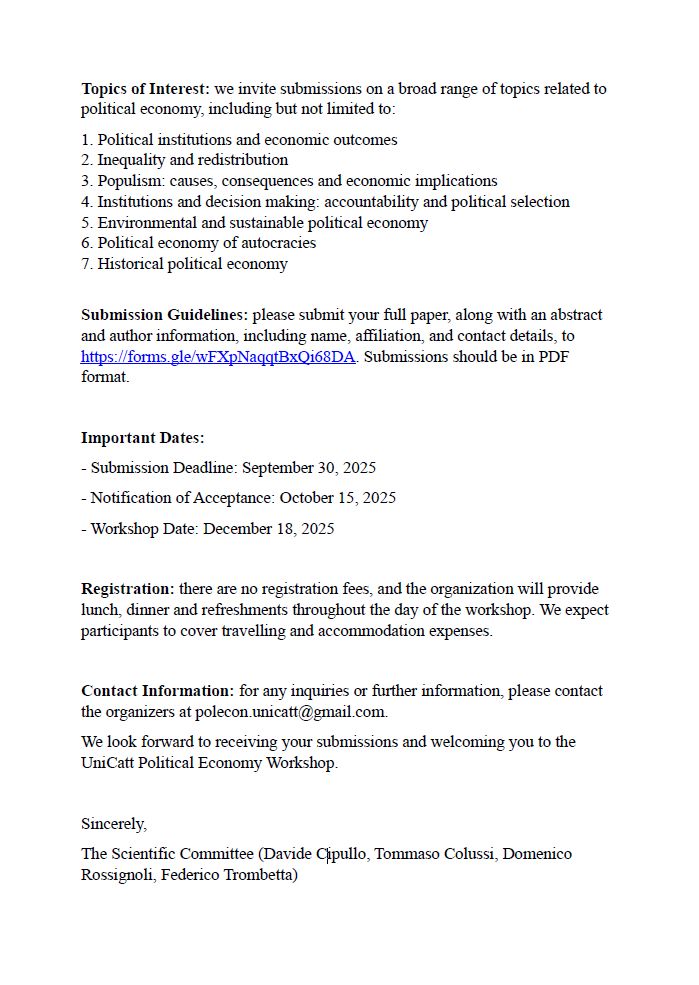
🚨Davide Cipullo, Tommaso Colussi, Domenico Rossignoli and I are excited to open the call for the 2nd UniCatt Political Economy workshop! We have 2 great keynotes: Alessandra Casella and David Yanagizawa-Drott. Send us your papers (theory or empirics) and let us meet in Milano on December 18.
04.08.2025 15:47 — 👍 10 🔁 6 💬 1 📌 3
Excellent piece of historical economic cultural evolution research! I will have to read it in more detail today.
17.07.2025 10:22 — 👍 4 🔁 1 💬 0 📌 0
✨Did markets make Americans more cooperative❓🔍
✅YES‼️
Between 1850 and 1920, the US became the largest and most integrated economy in the world 📶🌎
We show that this shift didn’t just move goods and affect prices—it fundamentally changed culture and behavior
🧵 👇 1/17
17.07.2025 07:22 — 👍 27 🔁 13 💬 3 📌 0
📄 Doux Commerce: Markets, Culture, and Cooperation in 1850–1920 U.S.
👥 Max Posch & Itzchak Tzachi Raz
Read the full paper here:
🔗https://dropbox.com/scl/fi/xydg1vid6a8pw8zmvw8yc/Posch_Raz_Markets.pdf?rlkey=4b4qwrdkdv47ri5721mfwy92v&dl=0
17/17
17.07.2025 07:22 — 👍 2 🔁 0 💬 1 📌 0
Bottom line:
We provide new support for the doux commerce hypothesis:
markets➡️impersonal prosocial norms, generalized trust, and broader patterns of cooperation
⚠️BUT markets also weakened traditional kin-based social insurance. Marx and Polanyi aren't entirely wrong!
16/17
17.07.2025 07:22 — 👍 6 🔁 1 💬 1 📌 0
2️⃣ Multiple indirect channels❌
Population diversity🫂, economic development🏭, access to information📰, and legal institutions🏛️—may have played some role, but none appear to account for the link between market access and generalized cooperative culture and behavior
15/17
17.07.2025 07:22 — 👍 1 🔁 0 💬 1 📌 0
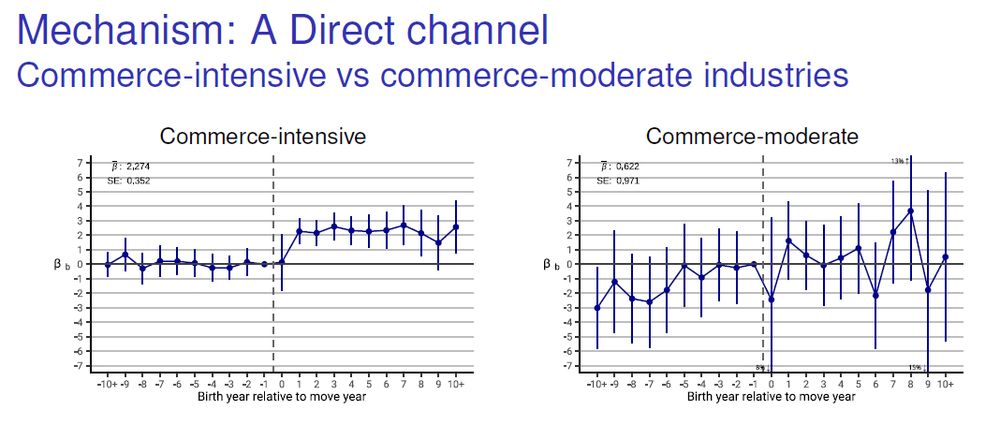
WHY❓Mechanisms:
1️⃣ A direct channel✅
Adaptation is concentrated in individuals more exposed to commerce and whose livelihood depends on it
⏩ More frequent and beneficial exchanges with strangers and increased economic interdependence is a key driver
14/17
17.07.2025 07:22 — 👍 4 🔁 0 💬 1 📌 0
Cultural adaptation paid off❗
Families who adjusted to the local, market-integrated norms had:
▪️Higher property values 📈🏡
▪️Lower child mortality 📉👶🪦
13/17
17.07.2025 07:22 — 👍 3 🔁 0 💬 1 📌 0
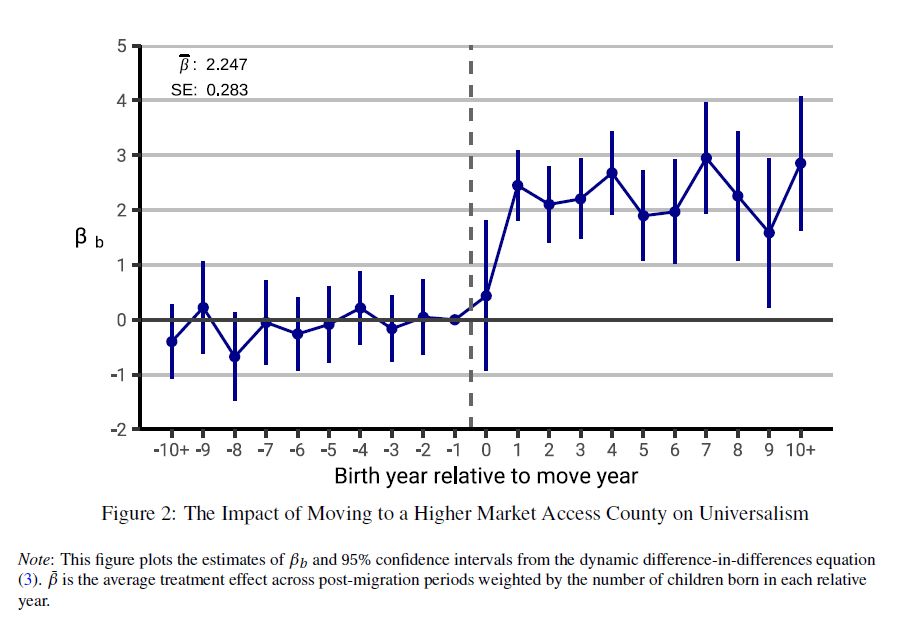
HOW❓
We track domestic migrants and find:
❌ Selective sorting
✅ Adaptation: People moving to more market-integrated areas adapted quickly
⬆️They become more universalistic
⬆️Higher cooperation in the labor force
⬆️More cooperation with non-kin at home
12/17
17.07.2025 07:22 — 👍 3 🔁 1 💬 1 📌 0
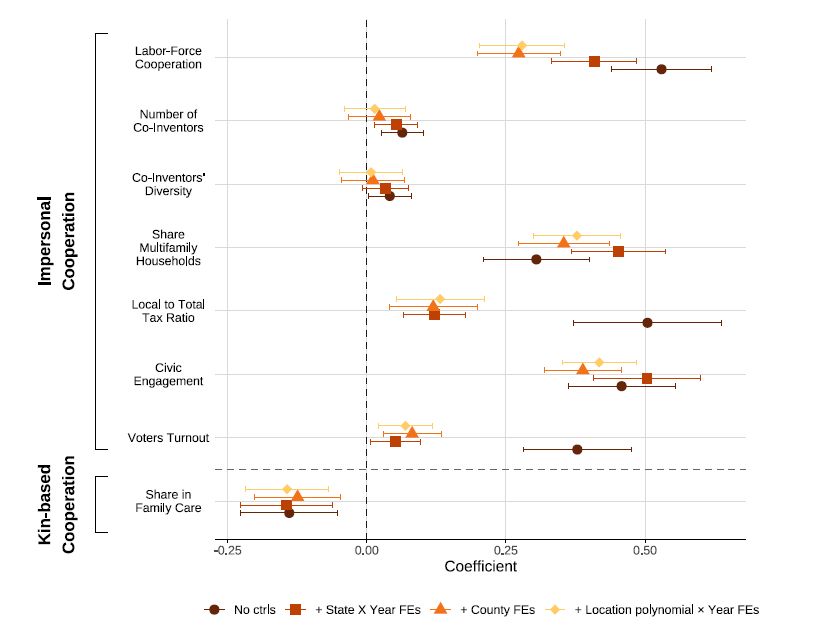
Our cultural and behavioral measures are deeply connected. Generalized cooperative culture is associated with:
⬆️ More impersonal cooperative behavior
⬇️ Less kin-based cooperation
10/17
17.07.2025 07:22 — 👍 2 🔁 0 💬 1 📌 0
For cooperative behavior, we measure:
🤝 Impersonal cooperation across different spheres of social life: at work, in innovation, at home, and within the community
👨👩👧👦👴👵 Kin-based cooperation with the share of vulnerable individuals cared for by relatives at home
9/17
17.07.2025 07:22 — 👍 1 🔁 0 💬 1 📌 0
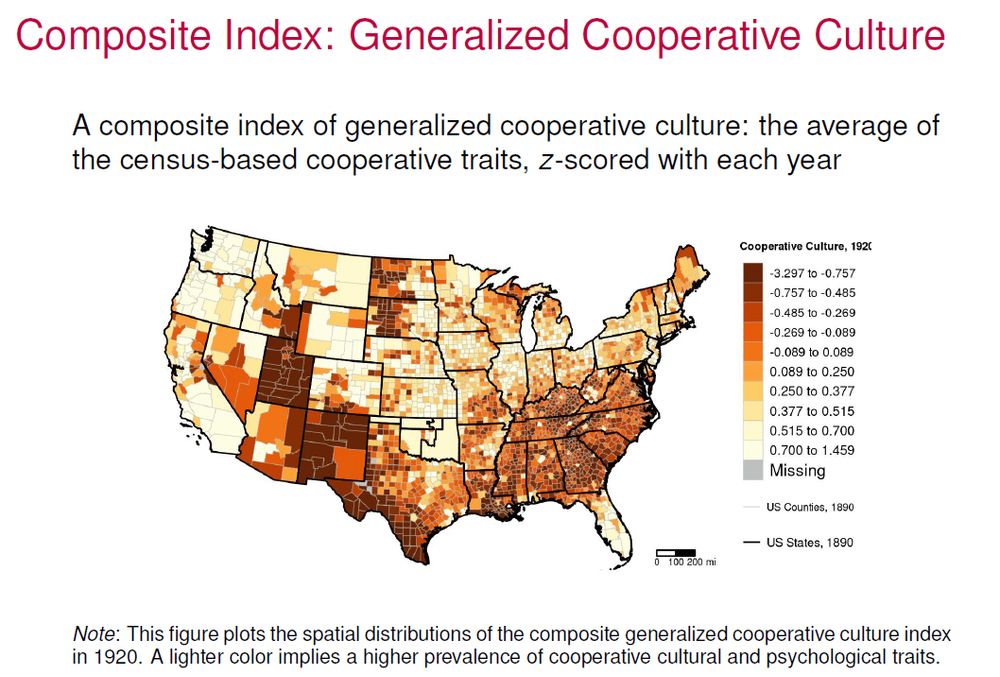
🧠 We measure generalized cooperative culture focusing on universalism, tolerance, and generalized trust—traits supporting cooperation with strangers, using indicators from Raz (2025) and a novel NLP measure of local historical newspapers
8/17
17.07.2025 07:22 — 👍 3 🔁 0 💬 1 📌 0
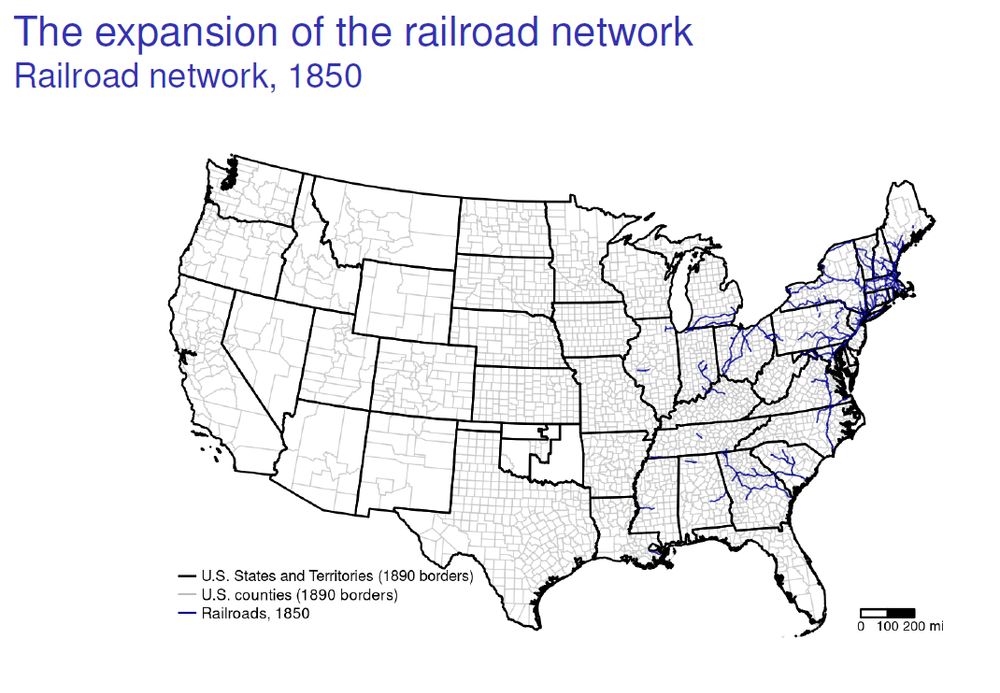
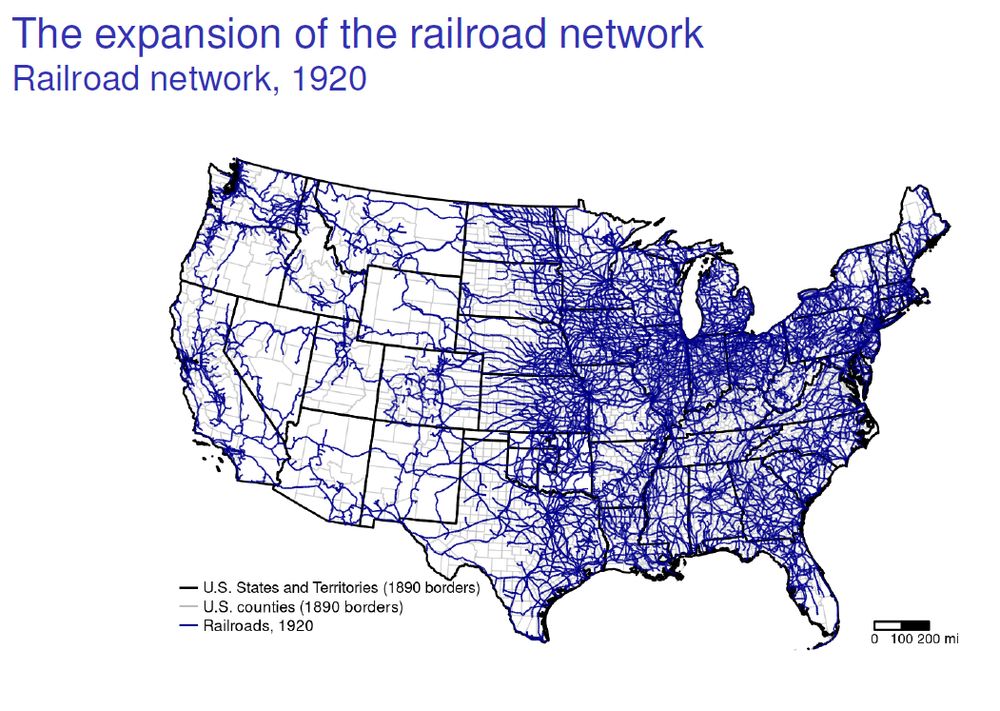
We measure market integration using a county-level “Market Access” following Donaldson & Hornbeck (2016)
📈 Counties saw big, uneven increases in market access over time, driven by the expansion of the railroad network and by population growth 🚂🛤️
7/17
17.07.2025 07:22 — 👍 4 🔁 0 💬 1 📌 0
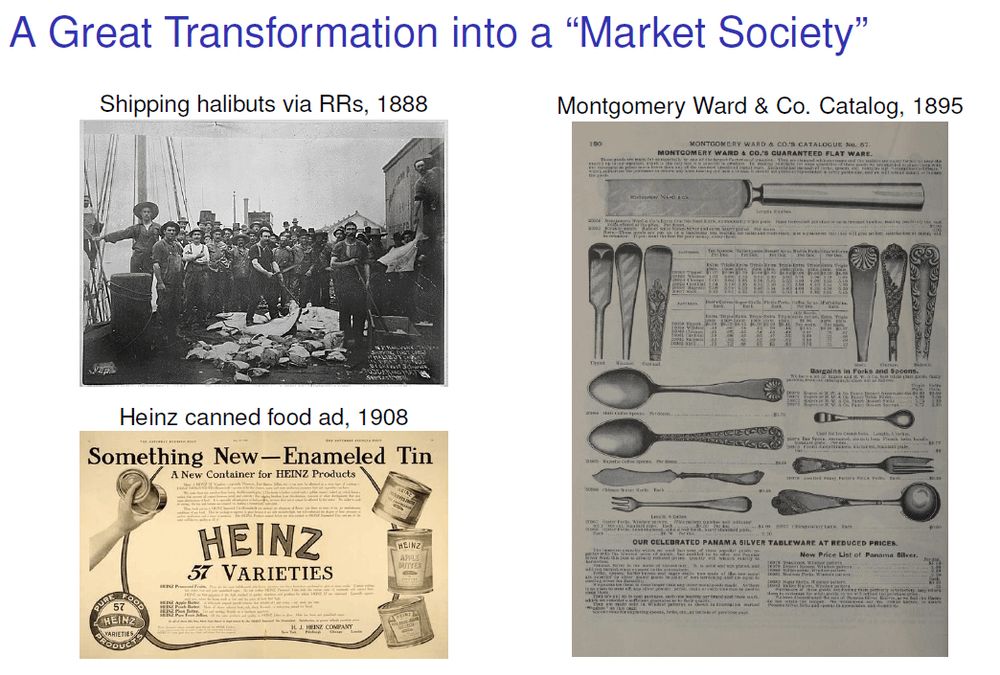
🌐Producers shifted from local subsistence to market-oriented production
🗺️ Long-distance trade rapidly expanded
🛒 Household consumption became increasingly reliant on distant sellers
6/17
17.07.2025 07:22 — 👍 2 🔁 0 💬 1 📌 0
To test these ideas empirically, we focus on 1850–1920 US.
During this period, the US became the world’s most integrated economy and transformed into a “market society,” where markets became a central organizing force of life:
5/17
17.07.2025 07:22 — 👍 2 🔁 0 💬 1 📌 0
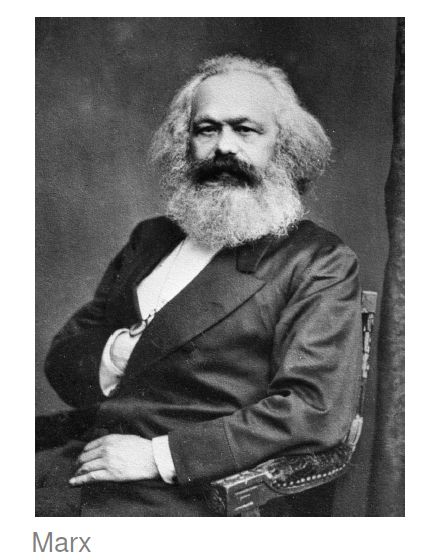
Critics like Marx and Polanyi argued that markets erode morality, commodify social relationships, and foster alienation and exploitation
4/17
17.07.2025 07:22 — 👍 1 🔁 0 💬 1 📌 0

Philosophers and social scientists have debated the moral and social implications of markets for centuries, but it remains contested and politicized. Enlightenment thinkers such as Montesquieu and Smith argued that commerce softens manners and reduces prejudice
3/17
17.07.2025 07:22 — 👍 1 🔁 0 💬 1 📌 0
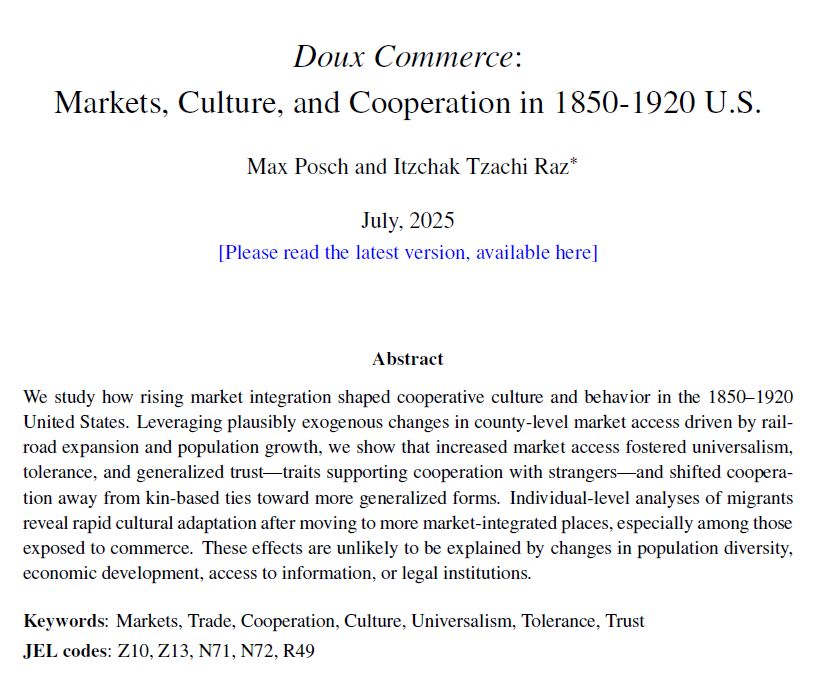
📢 In our 🆕working paper (with @raztzachi.bsky.social
), we show that as markets expanded, Americans became more universalistic, tolerant, trusting, and cooperative
🔗https://dropbox.com/scl/fi/xydg1vid6a8pw8zmvw8yc/Posch_Raz_Markets.pdf?rlkey=4b4qwrdkdv47ri5721mfwy92v&e=1&dl=0
2/17
17.07.2025 07:22 — 👍 1 🔁 0 💬 1 📌 1
✨Did markets make Americans more cooperative❓🔍
✅YES‼️
Between 1850 and 1920, the US became the largest and most integrated economy in the world 📶🌎
We show that this shift didn’t just move goods and affect prices—it fundamentally changed culture and behavior
🧵 👇 1/17
17.07.2025 07:22 — 👍 27 🔁 13 💬 3 📌 0
briangknight.bsky.social
📌 Excited to announce the 2nd Northeast Political Economy Conference 📌 We (briangknight.bsky.social) are seeking submissions from economists & political scientists working on political economy topics.
Please submit by June 16 and join us at Brown on Friday, Oct 3 forms.gle/i4wi88Q6P3tJ...
28.04.2025 20:48 — 👍 22 🔁 11 💬 1 📌 0
YouTube video by FBE UniMelb
Cultures in Crisis? Cultural Evolution and the Potential for Global Mismatch
Best video to watch during the Easter break 🥚🐣 youtu.be/lmIABocWBHI?...
17.04.2025 16:51 — 👍 1 🔁 3 💬 0 📌 0
Book writer ("How to Win a Trade War")
Economics columnist at the Financial Times https://www.ft.com/soumaya-keynes
Host of The Economics Show podcast https://link.chtbl.com/economicsshow
Singer-songwriter http://bit.ly/2Z6gvjp
The Growth Research Platform is a CEPR initiative funded by the UK Foreign and Commonwealth Office (FCDO) which brings together three key FCDO funded research programmes, together with VoxDev and a Policy Response Window, on one platform.
Professor of Economics at the Kiel Institute and Hamburg University
Interested in Historical Political Economy and Geoeconomics
Official account of the Department of Economics (IDEP) of USI, Lugano
A Journal of the Royal Economic Society
academic.oup.com/ej
Assistant prof at IE University. Previously EUI and Oxford.
Researching what we think is ok to do in a democracy & how that changes.
Book on the normalization of the radical right: https://academic.oup.com/book/57946
More at www.vicentevalentim.com
Chief political commentator and executive
editor, Financial Times
https://www.ft.com/robert-shrimsley
https://www.chartwellspeakers.com/speaker/robert-shrimsley/
Part-time economist; full-time consumer of news, pop culture, politics, movies, music, sports, and an occasional book; horrified by what is going on in the U.S.
Stanford economist:
Professor of Political Economy; Business & Sustainability.
GSB, Doerr, NBER, CEPR, UiO, TSE, 3ERC.
https://www.gsb.stanford.edu/faculty-research/faculty/bard-harstad
Climate & environmental economics; micro; theory; institutions; trade
Chief Economics Correspondent for The New York Times. Adjunct at CUNY Newmark. Ex: FiveThirtyEight, WSJ. He/him.
Email: ben.casselman@nytimes.com
Signal: @bencasselman.96
📸: Earl Wilson/NYT
Helping folks of all sizes with style, daily fits, discussing quality & sharing my mistakes.
Owner @davidlanedesign
✉️: bigfits11@gmail.com
Microeconomist, Behavioral Economist, Author of "Misunderstandings: False Beliefs in Communication"
I study the evolution of human culture with a focus on environmental behaviors and institutions and an eye toward helping these become more sustainable on a single, limited planet. https://timwaring.info/
Assistant Prof. at Yale School of the Environment. Political economy of climate and environment, land use change, remote sensing, causal ML. https://sanford-lab.github.io/
Writer http://jalammar.github.io. O'Reilly Author http://LLM-book.com. LLM Builder Cohere.com.
My market design blog: https://marketdesigner.blogspot.com/ Forthcoming in May: Moral Economics https://www.amazon.com/Moral-Economics-Prostitution-Controversial-Transactions/dp/1541702018
Co-director British Election Study. Political Scientist and Data Scientist. Political science methods/political behavior/causal inference. Posts do not represent employer.
Defence Editor at The Economist.
Visiting Fellow at Department of War Studies, KCL. For speaking engagements: https://chartwellspeakers.com/speaker/shashank-joshi






